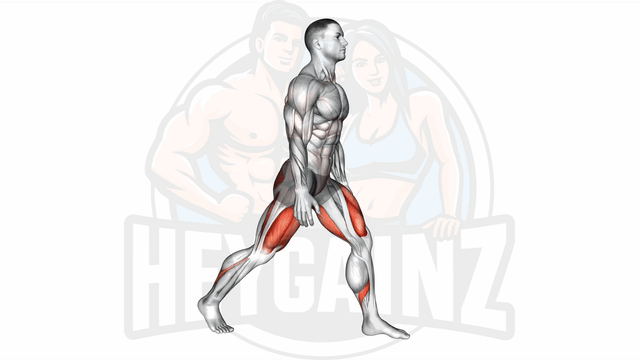
Instructions:
- 1Stand straight with your hands at your hips
- 2Move one foot forward and bend both knees to lower your body
- 3The back knee should almost touch the ground
- 4Push up through the heel of the forward foot and return to the initial position
- 5Switch legs and repeat
Tips:
- Make sure your front knee is in line with your foot
- Keep your chest straight and core engaged
- Do not let your knee go over your toes while squatting
- Balance your bodyweight between both feet